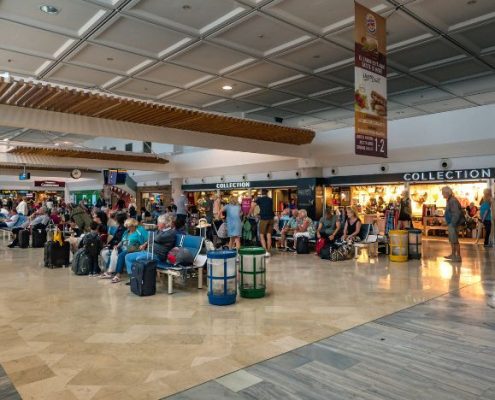
Local Christmas Gifts
NewsFrom Playa Blanca to the old town of Teguise, Lanzarote is full of shops where you can find the perfect Christmas gift. Here are just a few ideas to ensure you make this the perfect festive season...

Giant squid found
NewsLa Graciosa residents were surprised to see the name of the island popping up around social media today, as an image of a giant squid found on La Graciosa had been uploaded to Facebook.

Kite Festival
NewsThis week offers a great excuse to head over the water to Corralejo, where the blue skies over the dunes just south of the resort will be filled with all kinds of strange and colourful shapes as the 35th Kite Festival takes place.

Woman freed from car
NewsFiremen freed a woman whose car left the road in Haría yesterday.

Cleaners day off
NewsTias Ayuntamiento has asked all residents and businesses in the municipality, including Puerto del Carmen, not to throw out rubbish tomorrow, Wednesday the 9th of November, as cleaning services and waste collectors will not be operating.

Recycling point opened
NewsThe Punto Limpio (recycling point) at Costa Teguise has finally opened to the public three years after the initially announced date.

Lanzarote Tourism Figures September 2022
NewsThe Lanzarote Data Centre have just released tourism figures for September this year.

Man injured by falling wall tile
NewsA man in Arrecife has been injured after he was hit by a loose wall tile that had fallen on him when sitting outside a café.

Where to get the November Gazette
NewsWe’ve had questions from our readers regarding the November edition since we started working remotely. Here’s a list of some of our biggest distribution points:

Tribute to Celia
NewsThe theme of Arrecife's carnival next year will be a homage to the “Queen of Salsa”, Celia Cruz.
